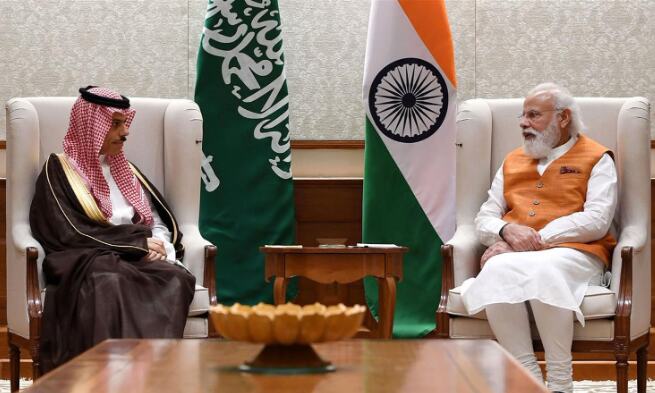Trapped in a quagmire
Pakistan’s softened stance over the US’ mishandling of the Afghanistan situation comes on account of PM Modi’s US visit and India’s improving ties with Saudi

In a sudden U-turn, which is seen as a significant major shift in Prime Minister Imran Khan's (PMIK) change of stance towards the US. It may be recalled of late, PMIK and other Pakistani leaders, both military and political, were more than vocal in their scathing criticism of the US for their alleged mishandling of the Afghanistan related developments and a hasty pullout. This development is seen as a step to assuage the bruised feelings of the US. And, Pakistan perhaps realizes that too much needling of the US may prove drastically counterproductive. Surprisingly, just before this volte-face, Imran Khan has gone on record castigating the US, rather vehemently in his interview in New York Times, other international print media as well as in the prominent American news channels. Pakistan watchers largely feel that PMIK should adopt a middle path instead of becoming outright anti-US, believed to be at the prompting of China. It is also assessed by reliable quarters that the Pakistan PM is peeved by India's growing proximity and development of a strategic partnership with the US particularly in the wake of the recent Taliban takeover and other allied happenings.
Pakistan is also trying to balance its relationship with the US given (i) Prime Minister of India Modi's visit to the US to meet President Joe Biden to further reinforcing the bilateral relationship between the two countries especially in the backdrop of developing QUAD partnership and fostering a functional anti-terror rapport with the US in view of the Islamic terror threatening the world at large after the boost of a Taliban victory and (ii) Pakistan also appears to have been a bit unsettled by India and Saudi Arabia coming further close as seen in the most recent successful and maiden visit of the Saudi Foreign Minister, Prince Faisal bin Farhan Al Saud, to India and holding a wide range of talks with the Indian foreign minister, Crucial officers of the security establishment Foreign Ministry and even the Indian PM. Meanwhile, the Indian External Minister, S Jaishankar has described the Indo-Saudi talks as very meaningful and both the parties discussed specifically Afghanistan, Gulf and Indo-Pacific, both renewing their Strategic Partnership Council Agreement which was signed between the two countries in 2019. New Delhi and Riyadh have, in the last couple of years, bettered their ties more substantially focusing on areas of security, culture, consular, healthcare and human resources. Such vibrant of developing long-term equations between Saudi Arabia and India is surely a formidable factor to unsettle Pakistan's foreign policy objectives as Pakistan always perceived and claimed that it was much closer to Saudi Arabia than India because of Islam being a common religion and also for Saudi Arabia's proactive leadership role in the Organization of Islamic Cooperation (OIC). However, sadly, Saudi Arabia is a sure ally of India irrespective of the general misconception that India could never be a friend of Riyadh. Such realistic features must have further put Pakistan at unease leading to giving second thoughts to avoid any alienation by the US.
Pakistan, in the meantime, is further drifting in the quagmire due to several other multiple reasons. Just before the Pakistan-New Zealand cricket match could take off last week, New Zealand suddenly cancelled the trip citing pinpointed hard intelligence stating that the New Zealand cricket team was not safe and secure on the Pakistani soil due to terror threats. While PMIK, frustrated by this insult, defended his intelligence outfit ISI as one of the best in the world, the NZ Prime Minister Jacinda Arden claimed to have had credible input suggesting possible harm to the NZ cricketers. Neutral security officers asserted with authority that recently New Zealand intelligence was dead right in their threat assessment and preventive actions, based on the intelligence when a Sri Lankan Islamic radical was apprehended following his terror assaults in Auckland, New Zealand. This sudden withdrawal of the cricket team from Pakistan which always claimed to be safe and secure has a definite reason for Pakistan to be incensed and crestfallen due to such marginalization. In any case, claiming ISI to be one of the best intelligence outfits is nothing but a fantasy.
Meanwhile, prominent Pakistan academic and political columnist, Naveed Aman Khan in a recent writeup, has cautioned the world about the activities of the Haqqani network in Afghanistan and Pakistan for its active linkage with ISIS due to what he describes at their strategic and tactical convergence. He has further alerted through his column that Pakistan should not extend support to the Taliban in Afghanistan as it has the potential to bring all other terror groups under one umbrella. However, the silver lining which this columnist has underlined is a streak of optimism that the Pakistan-Afghanistan-Taliban romance seems to end within a few weeks and maximum months. Such an assessment could be far-fetched, yet it does not merit being dismissed altogether. Naveed Khan is also hopeful that Islamic radicalism may eventually be rejected by the Pakistani people in general as seen from the three years rule of Imran Khan where he, despite all his assurances, has not been able to implement 'Riasat-e-Madina'. To buttress his argument, Naveed cites the complete inability of Gen Zia Ul Haq who did not enforce 'Nizam-e-Mustafa', during his 11 years term. All these factors, when seen under the prism of a holistic picture, indicate that Pakistan needs to be more candid and unbiased in its pursuits of foreign and domestic policies, especially in its dealings with Afghanistan and more importantly, the US.
The writer is a retired IPS officer, a security analyst, and a former National Security Adviser to the PM of Mauritius. Views expressed are personal



